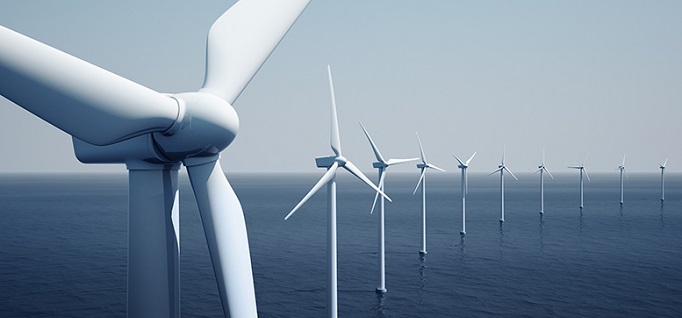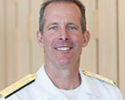Training to meet offshore wind industry workforce needs
By Rear Admiral Francis X. McDonald
June 30, 2021
Community colleges can be a partner in training people for the offshore wind industry workforce
The U.S. Department of Energy estimates 43,000 new jobs will be created in the offshore wind market by 2030. The East Coast, and particularly the Northeast, is poised to benefit from this growing industry.
The Massachusetts Clean Energy Center has published an assessment of jobs and economic impacts associated with the development of 1,600 megawatts in Massachusetts. That study estimated that over the next decade, offshore wind farms will create 2,000 to 3,000 jobs and generate economic impacts between $1 billion to $2 billion throughout the region.
Companies are making progress to make offshore wind a true reality as a vital power source for our area. Vineyard Wind recently completed the approval and permitting process and is cleared to begin construction of the first utility-scale offshore wind farm in the United States – an 800-megawatt project. Mayflower Wind received the second contract to sell power to the commonwealth’s electrical distribution companies and is developing a federal offshore lease area that has the potential to generate more than 1,600 megawatts of low-cost clean energy or enough to power over half a million homes.
Partners on workforce development
With the potential of thousands of well-paying jobs coming to the region, we must have a well-trained workforce ready to go. CONNECT institutions of higher education are working together to make sure that happens.
Connect4Wind is an innovative partnership between Bristol Community College, Massachusetts Maritime Academy (MMA) and the University of Massachusetts Dartmouth that formed in 2018. Through a formal agreement, we share resources and collaborate on the development of curriculum and programs centered on offshore wind energy. Bristol, MMA, UMass Dartmouth and other CONNECT partners, including Bridgewater State University, Cape Cod Community College and Massasoit Community College, are developing training programs and engaging with industry and local stakeholders so that our students today are prepared through both academic and hands-on training to fill the jobs that offshore wind and the supply chain will bring in near future.
MMA, in partnership with Relyon Nutec and with financial support from the Massachusetts Clean Energy Center, has launched the first Global Wind Organization (GWO) Basic Safety Training (BST) program in the Northeast. Our curriculum includes five modules, which we were the first in the nation to offer: First aid, manual handling, fire awareness, working at heights and sea survival. In addition, all seven of MMA’s undergraduate and three graduate programs have strong ties to co-ops and jobs within the wind industry, which are providing hands-on training for students looking to join this growing workforce.
Bristol Community College’s National Offshore Wind Institute (NOWI) will provide the offshore wind industry and its supply chain with a one-stop shop for training, certifications and customized programs for its workforce. NOWI, with its globally recognized partner Maersk Training, will offer GWO basic safety and basic technical training required for offshore wind workers in the field. Bristol also offers an associate degree program in offshore wind power technology, as well as a certificate to become an offshore wind power technician.
Cape Cod Community College (CCCC), through support received from the Massachusetts Clean Energy Center, has launched a Sustainable Energy Certificate, providing an introduction to offshore wind and renewable energy industries with a focus on emerging technologies, career outlook and educational pathways. CCCC also connects its students to the rapidly developing internship and co-op opportunities in offshore wind.
Through community outreach efforts, CCCC has offered workshops on offshore wind technologies and careers for middle and high school students and teachers, and the general public in the cape and islands communities.
Additionally, scientists and engineers at UMass Dartmouth have played a key role in the federal approval process for Vineyard Wind, as well as other pertinent topics, such as foundation design, wind resource forecasting, advanced materials and policy guidance, with over $8 million in research funding for offshore wind to date. UMass Dartmouth researchers will continue to play an important key role in monitoring the environmental, economic and fishing industry impacts.
Training our workforce locally helps keep jobs in the region. Who better to keep the offshore wind industry efficient, productive and safe than our local young people who live here and want to see their home state benefit from a clean source of energy for many years to come?
There’s more to the story! Read the full article in CC Daily.



